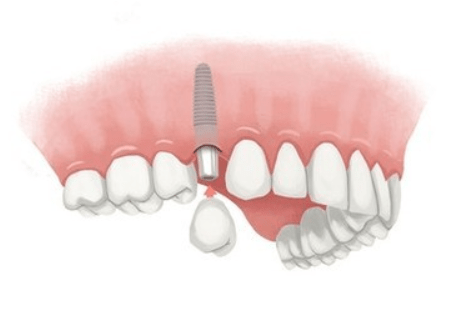
3 Best Missing Tooth Replacement Options You Can Explore
To the naked eye, having missing teeth might not be a serious problem. But in reality, this can cause detrimental effects on a person’s oral and mental health, like loss of confidence, infections, chewing problems, and speech difficulties. Thankfully, there are a variety of tooth replacement options you can explore to help solve these issues.
If you’re suffering from tooth loss, be sure to consult a dental specialist immediately. They can help you determine the best solution for your specific case. To give you a better idea, here are some treatments that your dentist may recommend:
Dental Implants
Dental implants are screw-like fixtures that are surgically mounted into the jawbone. They serve as a foundation for fixed or removable artificial teeth such as bridges, dentures, and crowns. When given the right care and attention, this missing tooth replacement option can last up to 25 years or more. They also come in different types. Some of the most common ones include:
- Single-Tooth Implants—allows placement of an implant without damaging the adjacent teeth.
- Snap-On or Overdenture Implants—can be removed and reattached anytime; a great option for people who are not used to wear prosthetic teeth.
- Full Arch Implants—recommended for people who are missing a full row of teeth on the upper or lower jawbone.
The procedure is usually done in three phases. However, patients with insufficient jawbone mass may require additional steps such as bone and sinus augmentation. But generally, a dental implant treatment involves:
- Surgical placement of the implant on the jawbone;
- Attachment of the abutment (a metal post that connects the artificial tooth to the implant);
- Insertion of the prosthetic teeth.
Removable Dentures
Dentures are removable tooth appliances that can be used to replace missing teeth and their surrounding tissues. The treatment involves attaching the false teeth to a base that resembles the color of your gums. Depending on your case, a dental specialist may recommend either of the two options:
- Removable Partial Dentures
Partial dentures are recommended for patients who need to replace one or more missing teeth. They are secured in place using a metal framework and a clasp. They are worn during the day and should be soaked in cleansing fluid overnight.
- Removable Complete Dentures
Complete dentures are a great option for patients who are missing a full set of teeth on their upper or lower gumline. They are secured in place using a suction or an oral adhesive. This treatment comes in two types—immediate and conventional.
- Conventional Dentures—this type is placed after the gum tissue has started to heal following teeth removal; the healing period can last between 8 to 12 weeks.
- Immediate Dentures—this type can be used temporarily while your conventional dentures are being made. They can be placed immediately after tooth extraction.
Dental Bridge
Dental bridges are artificial teeth (also referred to as pontics) that help fill the gap created by missing teeth. They can be made of different materials such as gold, alloy, and porcelain. They also come in three different types, including:
- Traditional Dental Bridge—recommended for people with natural teeth on both sides of the gap; it is placed by attaching the false tooth to the adjacent teeth.
- Cantilever Dental Bridge—requires only one natural tooth to support the bridge;a crown isused to cover the natural tooth adjacent to the gap before securing the bridge in place.
- Maryland Dental Bridge—can only be used if the patient has natural teeth on both sides of the gap. It is supported by a metal or porcelain framework attached to the back of the adjacent teeth.
Choose a Dental Clinic That You Can Trust
Whether you’re suffering from tooth loss due to physical trauma, a genetic disorder, or gum disease, don’t be discouraged! You can always consult a dental specialist to find out the most suitable missing tooth replacement option for your specific case. Do your research to find out which clinics offer high-quality services at a reasonable price. Be sure to inquire about payment options as most offer insurance coverage and special discounts. By doing these steps, you are one step closer to gaining back the confidence in your smile.